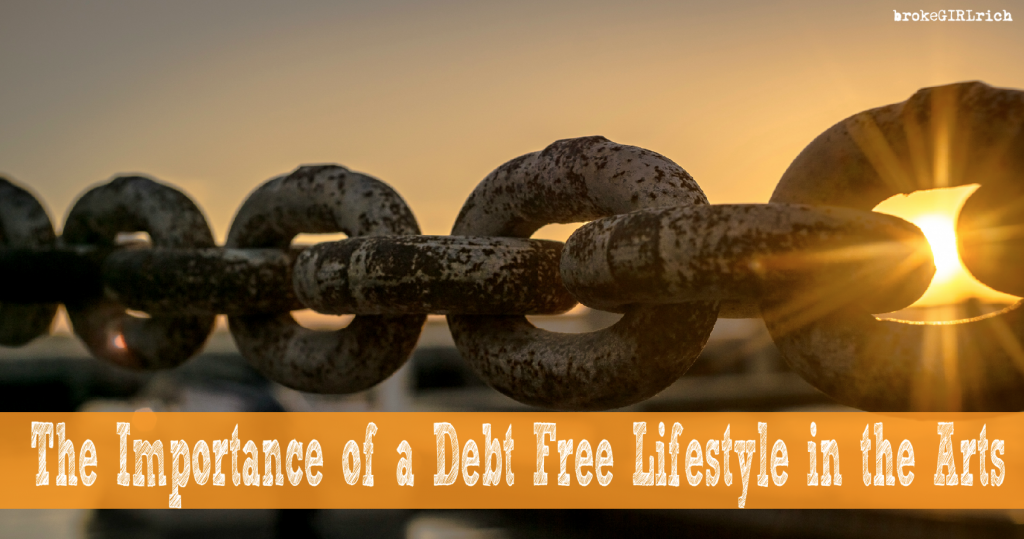
The Importance of a Debt Free Lifestyle in the Arts | brokeGIRLrich
I am super excited to go on the CircusTalk podcast in November where I’ll get to share my passion for personal finance with the wider circus community.
In preparation for that interview, the host was kind enough to send over a few of the questions she’s planning on asking, so in preparation for the show, I’ve decided to focus my blog posts around them for the next few weeks.
That being said, if the circus side of my life is what you find particularly interesting, you might like checking out the CircusTalk website.
Let’s start with why a debt free lifestyle is important for people in the arts (and heck, people in general).
To me, being debt free has always meant freedom.
Work wise, it means freedom to choose who I’m going to work for and freedom to walk away if it’s a living nightmare (because let’s be real, those gigs that make you hate life do exist).
I finished up grad school about $30,000 in debt and it was the catalyst that started my personal finance journey. I was working for a company that was making me really unhappy and I just desperately wanted to quit, but I knew I couldn’t because I was making those debt payments and had barely any savings.
It was a craptastic lesson, but it has stuck with me all these years.
The more in control of your finances you are, the more control you have in general.
It’s not new that the arts can be an unsteady career path at the best of times (and in pandemic times, I mean… despite all the dire warnings all of us have gotten all of our lives, I don’t think anyone saw this coming).
If you have high debt payments from school loans, credit cards, car payments, even your mortgage, this can really have an effect on which jobs you can take.
If you need to clear $2,000-3,000 a month, especially early in your career, it’s unlikely you’ll be able to count on making that much.
Which means you’ll continue to rack up even more debt just trying to stay afloat.
Keeping my debt in check has allowed me to work on a little regional opera, that also happened to have a Metropolitan Opera maestro and soprano, and a Broadway star stretching his wings in a different direction. The pay was terrible. The connections and the learning experience were excellent.
Keeping my debt in check has allowed me to work on some really small productions where I wore 15 hats, brushed up some stage managing skills that I usually delegate, and learn about company management, producing, general management… essentially all the management positions the tiny company skipped over hiring (and if they skipped too many things, it also gave me the financial freedom to walk away – and sometimes even just knowing I could has given me enough of a mental boost to get through a lousy contract).
Keeping my debt in check has allowed me to work essentially for free on three months of digital productions, which I was able to turn around and point out my now “expertise” in those technologies to get a decently paying job.
Lack of debt gives you freedom to experiment and take some chances. It lets you take a lower paying or even volunteer job with incredible co-workers for free. It lets you take a month off to go attend some class with an expert in your field.
In the long run, all of these things can push your career much farther than someone who absolutely has to take job X because it pays them enough. Or someone who has to work a second job outside of the industry to pay most of their bills. That’s also going to limit the gigs you are free to take.
Honestly, I think one of the best ways to set yourself up for success in the arts is to get rid of as much of your debt as possible before diving in. It will open up a world of opportunities to you that just won’t be available to people who need to maintain a higher income.



